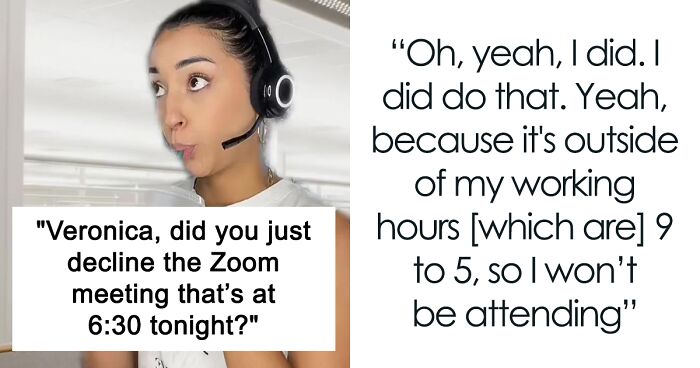
“Susan, Do I Look Like 2 People To You?”: TikToker Is Going Viral For Her Philosophy Of ‘Acting Your Wage’ At Work
After the pandemic calmed down and people started to go back to their normal lives, something changed in their heads and they were done with working overtime and with trying for the team and the company if they don’t get a proportionate compensation.
This philosophy has a name which was coined in 2009 and experienced a surge this year, especially on TikTok. One of the advocates of ‘working your wage’ is Sarai Marie, who creates skits of exaggerated situations at work in which the character Valerie sets healthy boundaries and doesn’t let anyone compromise her work and life balance.
More info: TikTok
Woman is going viral on TikTok because she creates videos about the workplace where she tells her boss what everyone would like to say
Image credits: @saraisthreads
Sarai Marie is a content creator on TikTok who, back in June, celebrated the milestone of having 100k followers and a few months later currently has 1.7 million people interested in what she does. Her videos constantly go viral and it probably is related to a shared sentiment of feeling abused by the system.
Her TikTok account is dedicated to short videos showing situations that you might have to deal with at work, such as getting more work than you can handle, being asked to stay longer after work, being asked to be available during your time off, and many other similar ones.
The skits star two main protagonists which are Veronica, the employee who is not willing to do more than her job description says, and Susan, the boss who always expects more than just a minimum effort.
Other characters include Deborah, who is very hard working and doesn’t mind sacrificing her time off or sleep if she knows she can finish the task overnight. There is also Kendra, who follows Veronica’s philosophy and doesn’t need reminding that working hours are over. There is also Bianca, the compassionate HR who is on Veronica’s side.
Sarai Marie got popular on TikTok for her video skits in which her character Veronica is ‘acting her wage’ and setting strict boundaries
Image credits: @saraisthreads
Veronica’s catchphrase is “respectfully”–that is how she responds to Susan when she is about to refuse to do what she is told because her boss is stepping over her boundaries. She is constantly seen with a cup of coffee, quite often snacking and occasionally crying because of how she hates her job and its toxic environment.
The videos are quite comical with Veronica’s exaggerated voice, dramatic facial expressions and maniacal laughter. But they are actually a reflection of scenarios she has been through in real life.
For her minimum wage, she puts minimum effort into her work and won’t go the extra mile to make her boss happy
Image credits: @saraisthreads
She opened up to Business Insider that she has been through all of it and she had to leave a terrible job to save her mental health. So when the woman noticed that the videos about work were starting to gain attention, she realized that so many people felt like her, so she started showing them the way.
The TikToker explained what her motto “act your wage” means: “If you’re acting your wage, that means that the amount of labor that you’re putting in reflects the amount that you’re getting paid. So you’re not going to go above and beyond and do the job of two to three people and do all this extra work if you’re really not even making a livable wage.”
In her opinion, quiet quitting doesn’t mean that you are a bad worker or don’t do your job, but “It just simply means make sure that you go to work and you set those boundaries when you feel burnt out.”
The character represents a phenomenon that surged this year called quiet quitting, which is doing exactly what your job description requires
Image credits: @saraisthreads
People are tired, overworked and burnt out. They realize that going above and beyond is not worth it because they don’t get anything in return. And even though the trend received backlash from employers, it just showed that they expected their employees to work more and work harder.
Maria Kordowicz, PhD, associate professor in organizational behavior at the University of Nottingham and director of the Centre for Interprofessional Education and Learning, notices that Gen Z is the most likely to not put too much effort into their work because after having to enter adulthood during a financial crisis, political turmoil and a pandemic, they don’t have the same belief the previous generations had that hard work will bring success.
It doesn’t mean you’re a bad employee but you just don’t try to overachieve because too often, it doesn’t bring any benefits
Image credits: @saraisthreads
Business Psychologist and Wellbeing Consultant Lee Chambers says that even though quiet quitting is a pretty new term, there is research to suggest that setting strict boundaries allows employees to improve their well-being, protects them from burnout and helps them not to fall for toxic productivity.
While quiet quitting helps with mental health in some aspects, it can also bring more negative emotions of “feeling like their role is meaningless, pointless, and boring” as pointed out by psychotherapist Tania Taylor.
There is also a chance that your career might not develop and your superiors may even get rid of you because colleagues may notice that you are not pulling your weight, as there will always be someone who overachieves.
Although it may slow your career development down and make you feel less fulfilled at work, it may increase your well-being because of a healthier work-life balance
Image credits: @saraisthreads
There are some things to consider before quiet quitting and you should ponder on what makes you feel more fulfilled, but it seems that the general consensus is that bosses expect too much and aren’t planning to compensate for it.
Do you think it is a more negative or positive trend? What do you think about Sarai Marie’s motto of acting your wage? Do you think you could allow yourself to put less effort into your work without fearing punishment for it? Let us know your thoughts in the comments!
Bored Panda reached out to Sarai Marie for a comment.
You can watch the funny skit in the video below
@saraisthreads#greenscreen I’d rather spend time with my family. 💅🏽 #actyourwage#fyp#work#working#corporate#corporatelife#corporatetiktok#corporateamerica#corporatehumor#office#officelife#manager#managersbelike#career#quietquitting#quietquittingmyjob♬ original sound – Sarai Marie
People in the comments liked the TikToker’s approach and have taken inspiration from her to do the same when they feel it’s necessary
It's not 'quiet quitting' it's called 'Working To Rule' and it's part of your right to protest and strike. Tired of this stupid useless neologism. Stop drinking the koolaid. Work to Rule. It's a form of striking.
People in strongly unionised countries know this, US not so much.
Load More Replies...Practice meeting yesterday as one PA going remote and part time, new doctor needing someone to cover her on her 2 days out. Apparently it was going to be expected of me as only PA in on Friday. "Will I be getting her salary then?" shut that conversation down pretty quickly.
I had to leave a job at a nonprofit because they tried to force me to do the work of three people. But they certainly didn't want to pay me three wages! I acted my wage, quit, then got another job for the same pay rate with one-third of the job duties. Most companies want to learn the hard way, so we're here to teach them.
It's not 'quiet quitting' it's called 'Working To Rule' and it's part of your right to protest and strike. Tired of this stupid useless neologism. Stop drinking the koolaid. Work to Rule. It's a form of striking.
People in strongly unionised countries know this, US not so much.
Load More Replies...Practice meeting yesterday as one PA going remote and part time, new doctor needing someone to cover her on her 2 days out. Apparently it was going to be expected of me as only PA in on Friday. "Will I be getting her salary then?" shut that conversation down pretty quickly.
I had to leave a job at a nonprofit because they tried to force me to do the work of three people. But they certainly didn't want to pay me three wages! I acted my wage, quit, then got another job for the same pay rate with one-third of the job duties. Most companies want to learn the hard way, so we're here to teach them.

 Dark Mode
Dark Mode 

 No fees, cancel anytime
No fees, cancel anytime 








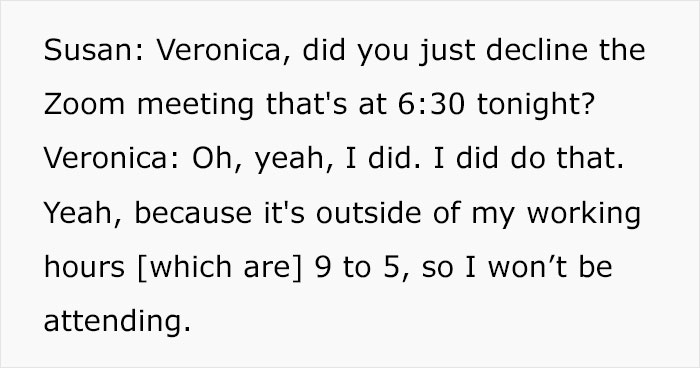
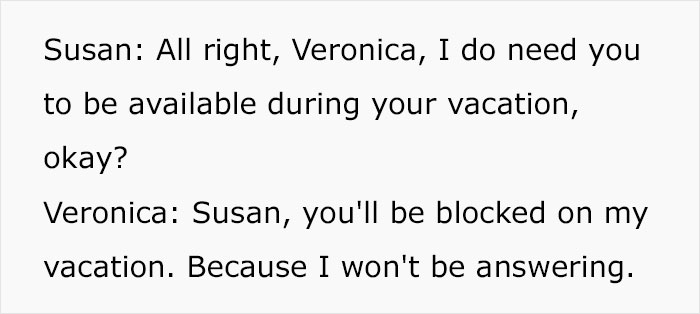
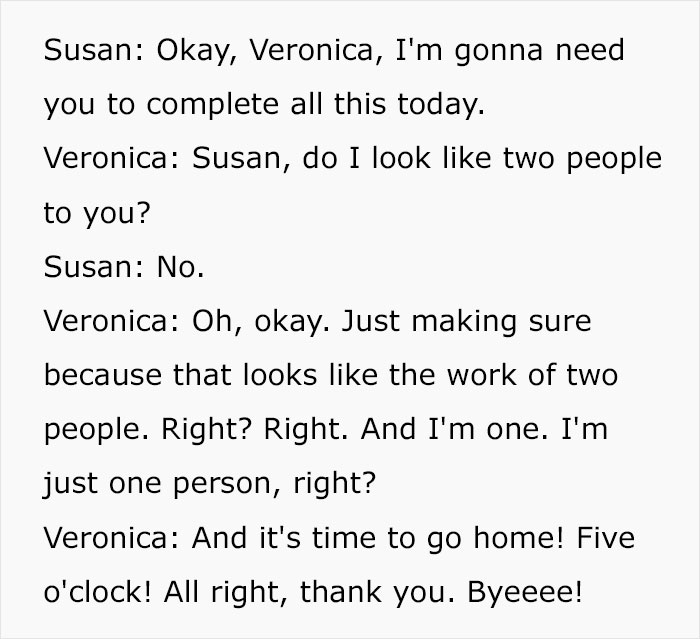

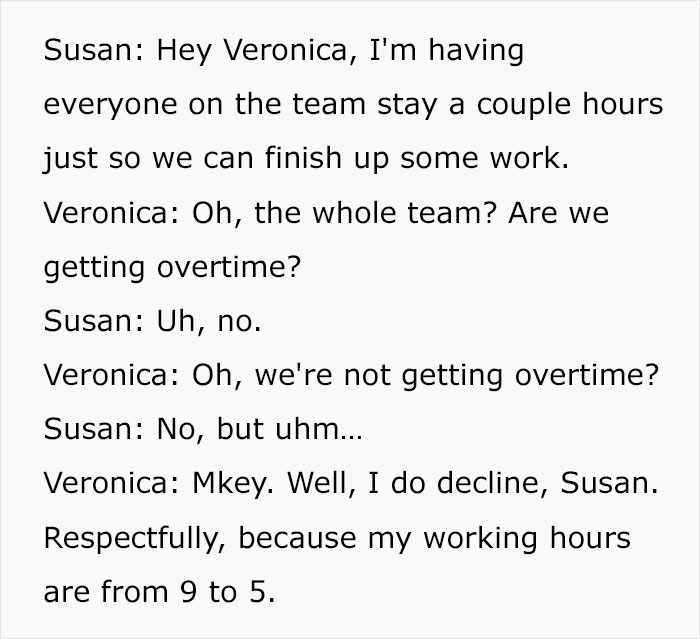
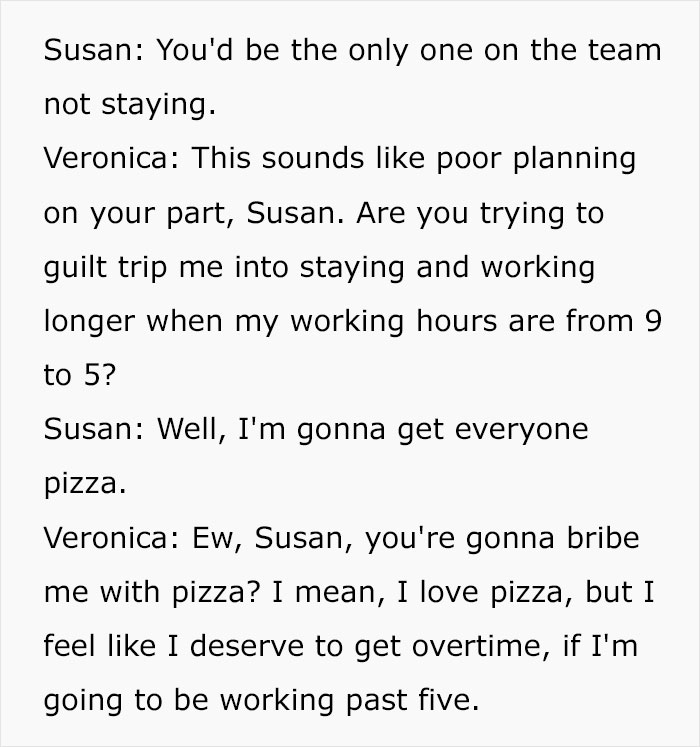
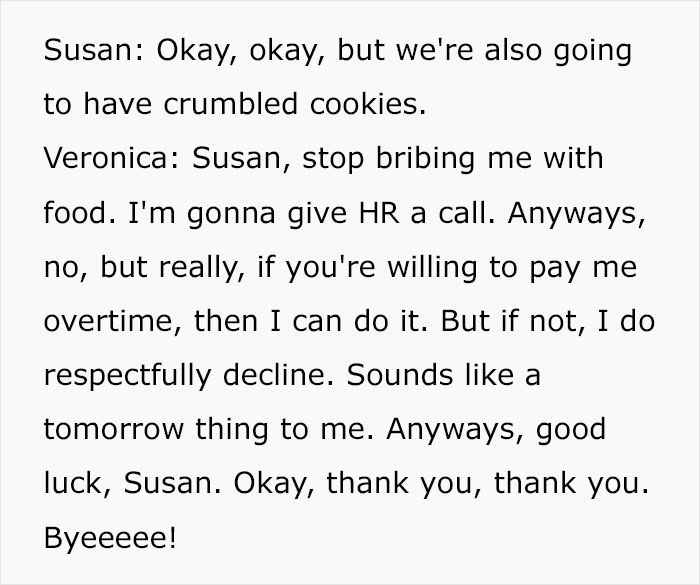


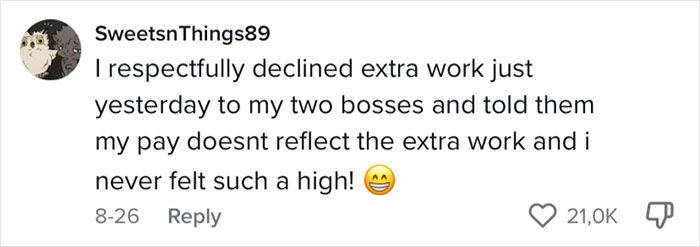
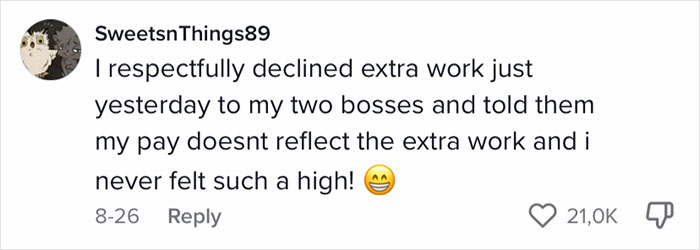





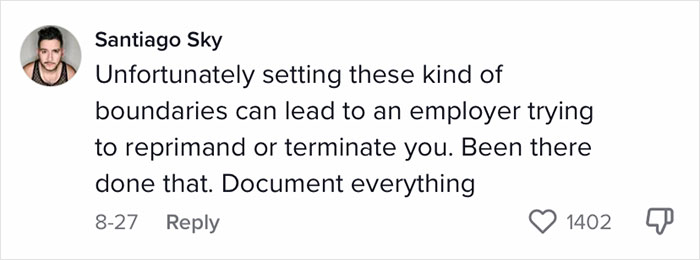

















































58
35